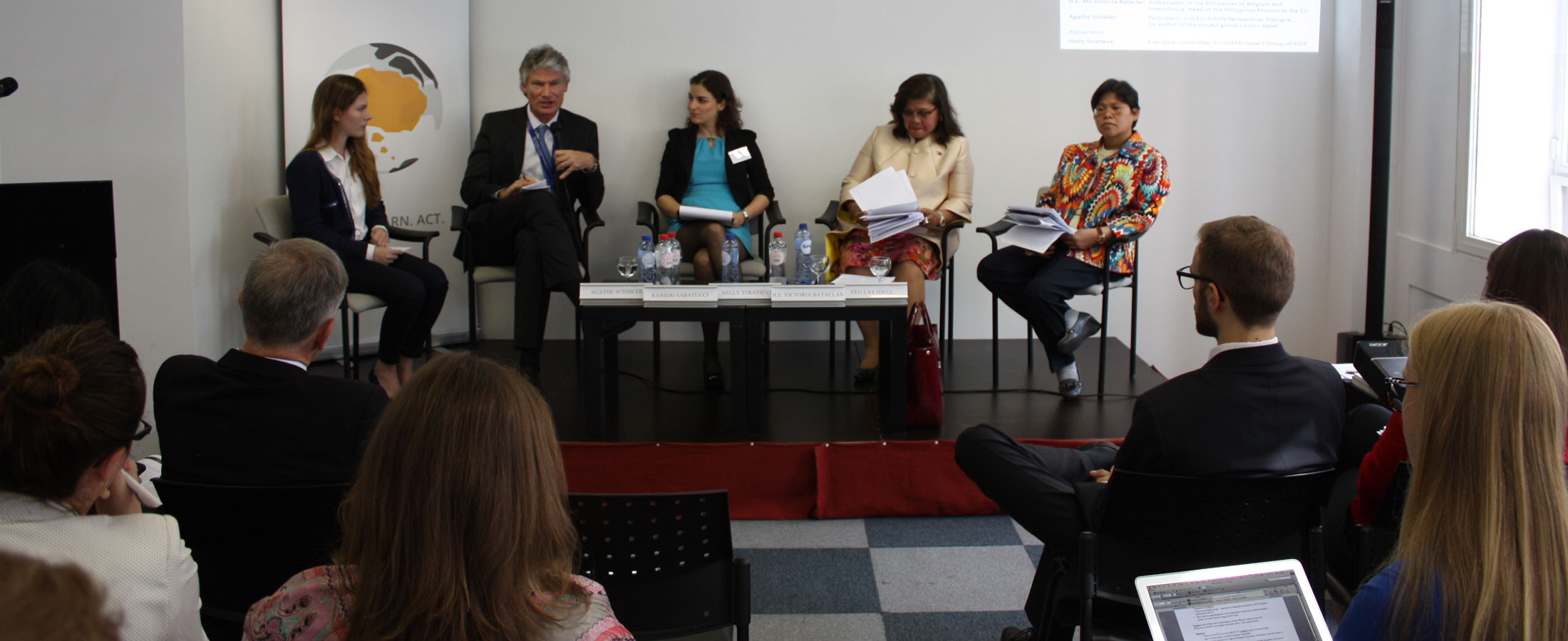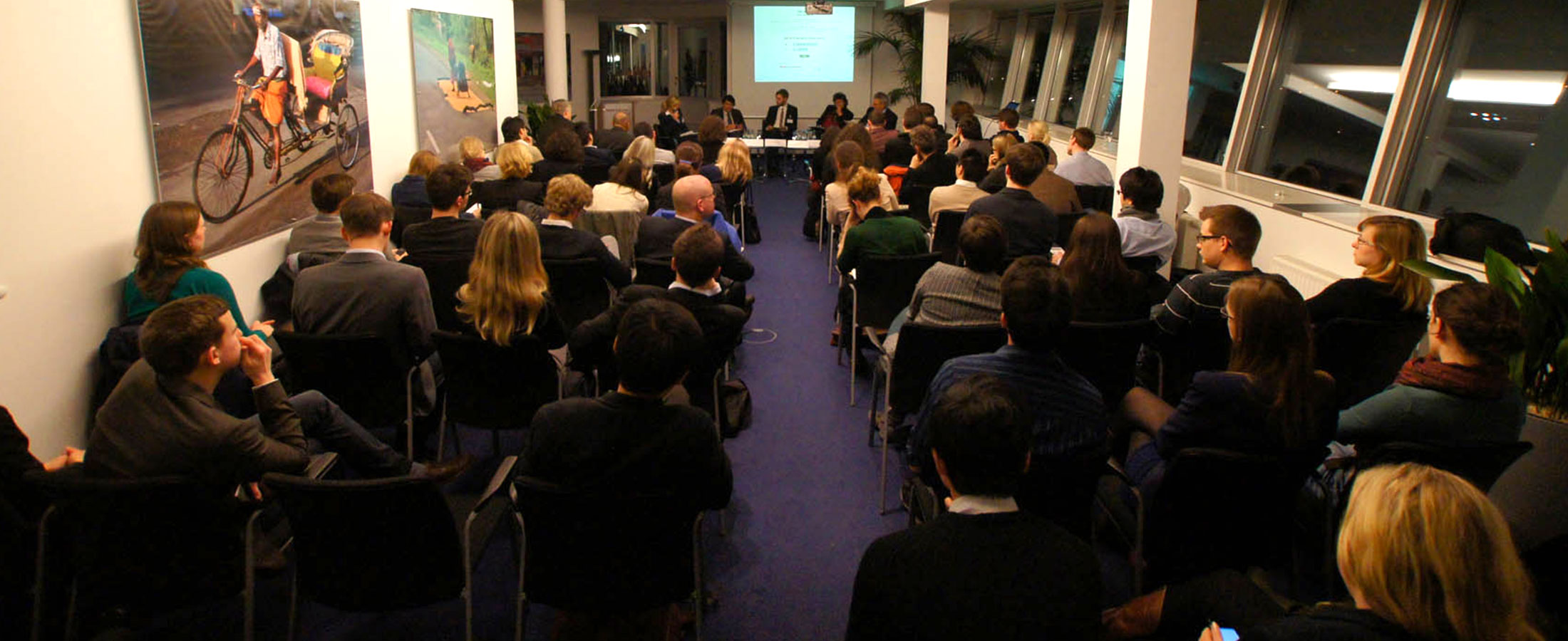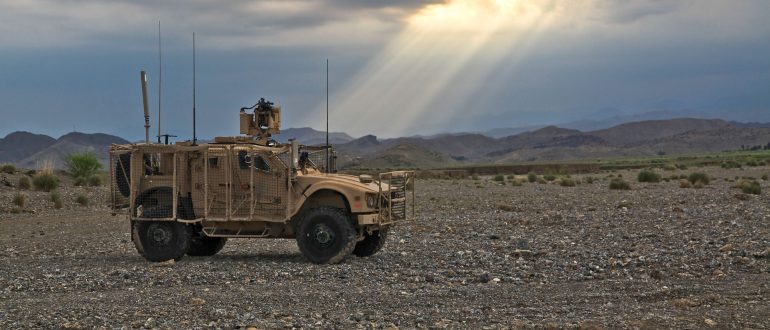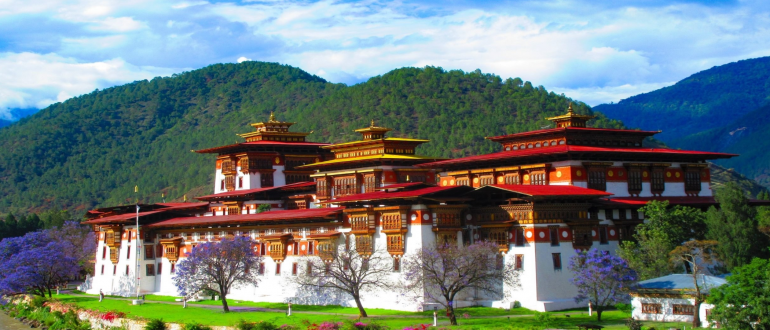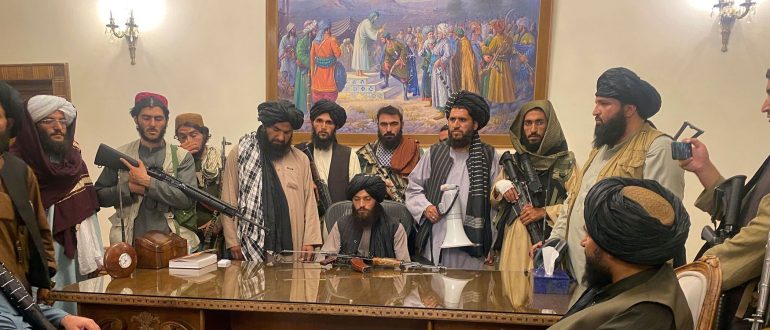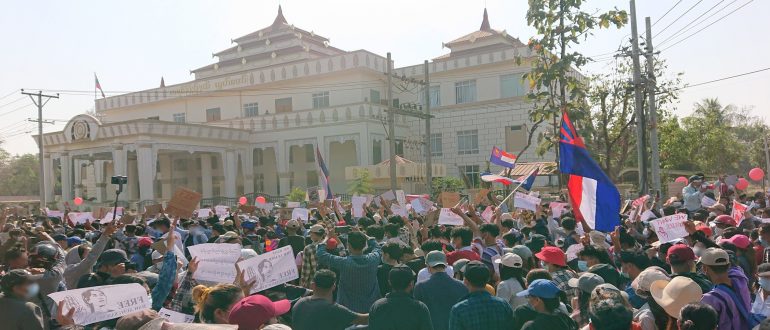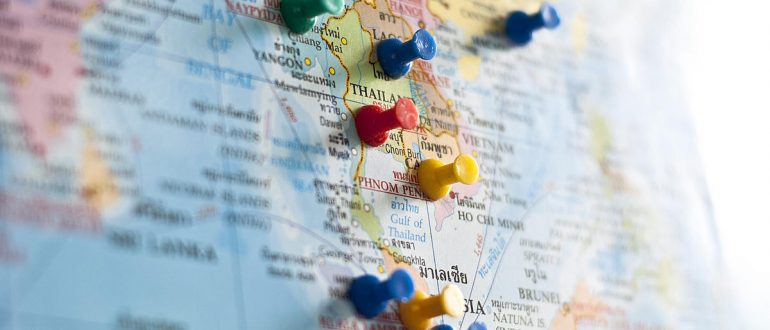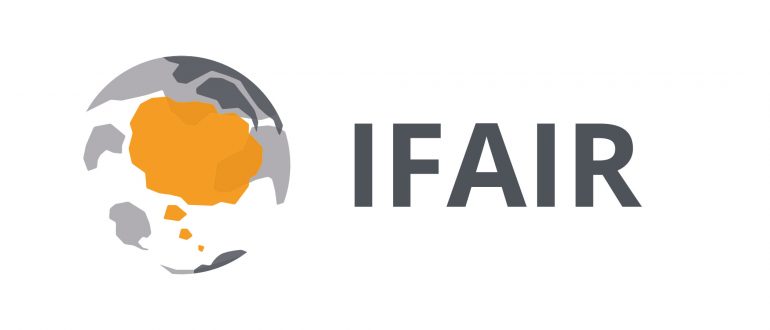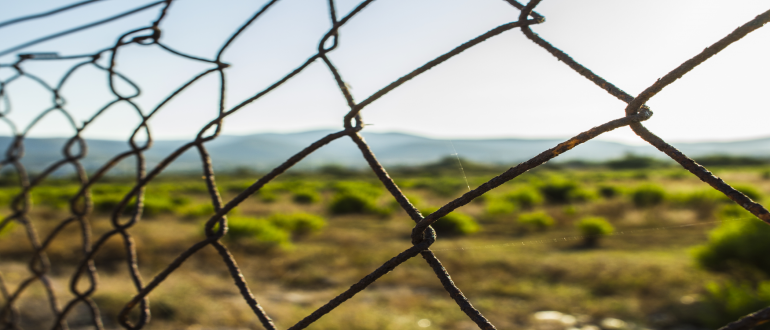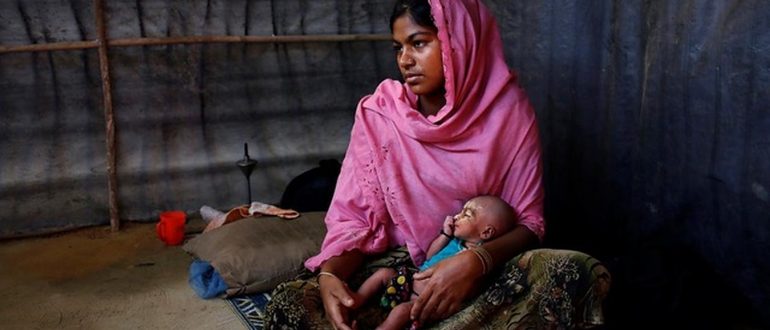The Interregional EU-ASEAN Perspectives Dialogues are an innovative format of exchange between young students and practitioners from Europe and Southeast Asia. Since 2013, IFAIR’s Impact Group EU-ASEAN Perspectives convenes online and offline events on current issues in interregional relations, and produces policy-relevant publications addressing the most pressing issues in EU-ASEAN cooperation. For more information on members and past activities, visit the Impact Group website here.
EU-ASEAN Perspectives II
The 2nd Interregional EU-ASEAN Perspectives Dialogue, running under the heading “Building global partnerships – Which role for the EU and ASEAN?”, was held between March and June 2015.
In an increasingly interconnected world, regional organizations are assuming an ever-greater role in international policy-making. As the two most advanced regional integration projects, the European Union (EU) and the Association of Southeast Asian Nations (ASEAN) are in the vanguard of this development and claim a seat at the table in global governance. Against this background, IFAIR invited young researchers and practitioners from the EU and ASEAN to explore whether and how the two regions can work together on today’s global challenges.
With both regional entities comprising spaces of vast political, economic, geographical, cultural and religious heterogeneity, EU-ASEAN cooperation could bring credibility and a strong voice in shaping the international arena. How much potential is there for such a global partnership?
In the EU-ASEAN Perspectives II Dialogue, students and young practitioners from Europe and Southeast Asia investigated to what extent the two regions share common goals in major policy areas on the global agenda. We focused specifically on 4 policy fields of interregional cooperation that can shape global issues:
- Development: In the post-2015 agenda, the United Nations seek to redefine and refocus the Millennium Development Goals. Can the EU and ASEAN work together on this project despite their socio-economic differences?
- International financial architecture: The G20 has become the primary forum for negotiating the reform of the IMF and other financial institutions, and representatives from the EU and ASEAN alike aspire to shape the outcome. Can they agree on joint action and increase their weight at the negotiation table?
- Multilateral vs. regional trade: The WTO process of liberalizing world trade has been stalled for years. Should the EU and ASEAN unite to revitalize the negotiations or does the future of trade relations lay in regional trade agreements?
- Climate change: With the upcoming international climate change conference in 2015 in Paris, developed and developing countries alike need to initiate a sustainable and significant reduction in global carbon emissions. Can the EU and ASEAN put a global spin on their cooperation in environmental issues?
Phase I
Twenty outstanding young scholars and practitioners from twelve countries in the EU and ASEAN were selected as project participants (list of participants). They discussed the abovementioned policy issues in an innovative online workshop format from 14-28 March 2015. The conference was held via WebEx technology, and consisted of kick-off and concluding plenary sessions, and 4 breakout groups (BOG) – one for each policy field. Each BOG was made up of five participants. Experienced academia and policy experts were available as advisors to the project participants (list of expert advisors).
The online conference resulted in a rich resource of policy recommendations and in a new network of young researchers from Europe and Southeast Asia. During two weeks of intensive research and collaboration within the framework of the BOG workshops, participants identified key challenges and opportunities for EU-ASEAN cooperation in the four target policy areas. This working phase was a highly interactive experience that allowed for direct interaction, discussions and team work between the young researchers from the two regions. Their research was assisted by insights from the project’s expert advisers. At the concluding plenary, all four BOGs held presentations on their research findings in the different policy fields, and had the opportunity to get feedback on their ideas from all project participants. An interesting overlap in the policy recommendations of the BOGs was observed following the presentations. While acknowledging the difficulties of direct interregional action and cooperation, the young researchers pointed towards the potential of greater private sector and civil society involvement.
You can view the BOG presentations from the concluding plenary here:
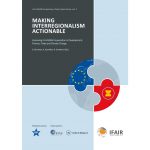 Presentation BOG Development
Presentation BOG Development
Presentation BOG Finance
Presentation BOG Trade
Presentation BOG Climate change
These and more findings from the online conference have been published as Volume 2 of IFAIR’s EU-ASEAN Perspectives Policy Paper series.
Breakout group line-ups (participant names and affiliation)
Development
Daniele Brunetto (University of Pavia, Italy)
Dani (Institute of Islamic Strategic Affairs, Center for Asian Studies)
Chiara De Santis (European Parliament, DG External Policies)
Elodie Sellier (Maastricht University, European Institute for Public Administration, The Netherlands)
Syaiful Anam (Universitas Mataram, Indonesia)
Finance
Camille Defard (Sciences Po, France)
Otto Jacobsson (Copenhagen Business School, Denmark)
Chayut Setboonsarng (APCO Worldwide)
Desmond Soo (Institut International de Sciences Appliquées de Rouen, France)
Pimwipa Vatanutanon (German-Thai Chamber of Commerce)
Trade
Veena Cute-Ngarmpring (Erasmus Mundus Students and Alumni Association)
Dominika Kaczkowska (Maastricht University, The Netherlands)
Lukas Maximilian Müller (Department of Political Science, University of Freiburg, Germany)
Dr. Anna Stahl (EU-China Research Centre, College of Europe, Belgium)
Climate
Agathe Schibler (Mandarin Training Center, National Taiwan Normal University)
Priska Arianti (The ASEAN Foundation, Indonesia)
Juliene Svetlana Cruz (Nanyang Technological University, Singapore)
Katarzyna Anna Nawrot PhD (Faculty of International Business and Economics, Poznan University of Economics, Poland)
Kenneth Wong (Penang Institute, Malaysia)
Prof. Dr. Tanja A. Börzel (general advisor)
 Tanja A. Börzel holds the chair for European Integration at the Freie Universität Berlin. She received her PhD from the European University Institute in Florence, Italy in 1999. From 1999 to 2004, she conducted her research and taught at the Max Planck Institute for Research on Collective Goods in Bonn, the Humboldt-Universität zu Berlin and the University Heidelberg. Her research focus and teaching experience lie in the field of institutional theory and Governance, European Integration, and Comparative Politics with a focus on Western and Southern Europe. She mainly concentrates on questions of institutional change as a result of Europeanization as well as on the diffusion of European ideas and policies within and outside of the EU. Since 2009 she has been leading the Kolleg-Forschergruppe (KFG) “The Transformative Power of Europe” together with Prof. Dr. Thomas Risse and she is project coordinator of the FP-7 research project “Maximizing the Enlargement Capacity of the European Union”.
Tanja A. Börzel holds the chair for European Integration at the Freie Universität Berlin. She received her PhD from the European University Institute in Florence, Italy in 1999. From 1999 to 2004, she conducted her research and taught at the Max Planck Institute for Research on Collective Goods in Bonn, the Humboldt-Universität zu Berlin and the University Heidelberg. Her research focus and teaching experience lie in the field of institutional theory and Governance, European Integration, and Comparative Politics with a focus on Western and Southern Europe. She mainly concentrates on questions of institutional change as a result of Europeanization as well as on the diffusion of European ideas and policies within and outside of the EU. Since 2009 she has been leading the Kolleg-Forschergruppe (KFG) “The Transformative Power of Europe” together with Prof. Dr. Thomas Risse and she is project coordinator of the FP-7 research project “Maximizing the Enlargement Capacity of the European Union”.
Dr. Laura Allison (general advisor)
 Laura Allison is a Research Fellow in the Public Policy and Global Affairs Programme at Nanyang Technological University, Singapore. She received her PhD in Comparative Politics and International Relations from the University of Melbourne, Australia. She also holds a Master of International Relations from the University of Queensland, Australia. Her research interests include comparative regional integration and EU-ASEAN relations. In her current position she is involved in the research project Federalism in Asia, investigating and conceptualising federal governance in countries throughout Asia. Her forthcoming book is entitled The EU, ASEAN and Interregionalism: Regionalism Support and Norm Diffusion between the EU and ASEAN.
Laura Allison is a Research Fellow in the Public Policy and Global Affairs Programme at Nanyang Technological University, Singapore. She received her PhD in Comparative Politics and International Relations from the University of Melbourne, Australia. She also holds a Master of International Relations from the University of Queensland, Australia. Her research interests include comparative regional integration and EU-ASEAN relations. In her current position she is involved in the research project Federalism in Asia, investigating and conceptualising federal governance in countries throughout Asia. Her forthcoming book is entitled The EU, ASEAN and Interregionalism: Regionalism Support and Norm Diffusion between the EU and ASEAN.
Mikael Ekman (general advisor)
 Employed at the Danish Ministry of Foreign Affairs since 2008, Mikael Ekman has worked as a diplomat in Jakarta, Brussels and Copenhagen. His main focus areas have been South East Asia and the European Union, respectively, with emphasis on the political and commercial opportunities and challenges that a shifting world order brings for Danish/EU cooperation with Asia. Currently serving as Deputy Head of Mission at the Danish Embassy in Jakarta, Mikael is covering developments in Indonesia and the ASEAN region up-close. The Embassy is also accredited as the official Danish representation to ASEAN. Mikael holds a Master degree in Political Science (International Relations) from Aarhus University in Denmark.
Employed at the Danish Ministry of Foreign Affairs since 2008, Mikael Ekman has worked as a diplomat in Jakarta, Brussels and Copenhagen. His main focus areas have been South East Asia and the European Union, respectively, with emphasis on the political and commercial opportunities and challenges that a shifting world order brings for Danish/EU cooperation with Asia. Currently serving as Deputy Head of Mission at the Danish Embassy in Jakarta, Mikael is covering developments in Indonesia and the ASEAN region up-close. The Embassy is also accredited as the official Danish representation to ASEAN. Mikael holds a Master degree in Political Science (International Relations) from Aarhus University in Denmark.
Moe Thuzar (Development)
 Moe Thuzar is Lead Researcher (socio-cultural) at the ASEAN Studies Centre at the Institute of Southeast Asian Studies (ISEAS), Singapore. Starting July 2012, she was appointed an ISEAS Fellow and is also a member of the ISEAS’ Myanmar Studies Programme. Moe coordinated the programme from July 2012 to October 2013. Before Moe joined the ASC in May 2008 she headed the ASEAN Secretariat’s Human Development Unit, which coordinated ASEAN cooperation in labour, youth, social welfare, education, women’s affairs, poverty reduction and rural development, health, and civil service matters. Moe is also a resident analyst for Channel News Asia’s Think Tank programme. She is working on a review of Myanmar’s foreign policy, focusing on the post-1988 period. Her research interests cover urbanisation and environmental cooperation in ASEAN, ASEAN integration issues, and ASEAN’s dialogue relations. Moe was a Temasek scholar for the Master in Public Policy Programme at the National University of Singapore.
Moe Thuzar is Lead Researcher (socio-cultural) at the ASEAN Studies Centre at the Institute of Southeast Asian Studies (ISEAS), Singapore. Starting July 2012, she was appointed an ISEAS Fellow and is also a member of the ISEAS’ Myanmar Studies Programme. Moe coordinated the programme from July 2012 to October 2013. Before Moe joined the ASC in May 2008 she headed the ASEAN Secretariat’s Human Development Unit, which coordinated ASEAN cooperation in labour, youth, social welfare, education, women’s affairs, poverty reduction and rural development, health, and civil service matters. Moe is also a resident analyst for Channel News Asia’s Think Tank programme. She is working on a review of Myanmar’s foreign policy, focusing on the post-1988 period. Her research interests cover urbanisation and environmental cooperation in ASEAN, ASEAN integration issues, and ASEAN’s dialogue relations. Moe was a Temasek scholar for the Master in Public Policy Programme at the National University of Singapore.
Raul Cordenillo (Trade)
 Raul Cordenillo has a unique combination of competencies and skills drawn from several years of national and international experience. Among his various roles are Development Project Manager, International Relations Professional, Resource Mobiliser, Trade & Investment Negotiator, Policy Advocate, Political Economy Analyst and Academic. Raul is currently the Head of Inter-Regional Dialogue, Partnerships and Advocacy at International IDEA in Stockholm, Sweden. In this capacity, he also heads the Inter-Regional Democracy Resource Centre, the full-time Secretariat of the Inter-Regional Dialogue on Democracy. He is also a Joint Doctoral Candidate in Social Sciences at Katholieke Universiteit Leuven and Universiteit Antwerpen and his research is on the Political Economy of the EU Anti-Dumping Policy and its Application to Asian Firms, such as those from China.
Raul Cordenillo has a unique combination of competencies and skills drawn from several years of national and international experience. Among his various roles are Development Project Manager, International Relations Professional, Resource Mobiliser, Trade & Investment Negotiator, Policy Advocate, Political Economy Analyst and Academic. Raul is currently the Head of Inter-Regional Dialogue, Partnerships and Advocacy at International IDEA in Stockholm, Sweden. In this capacity, he also heads the Inter-Regional Democracy Resource Centre, the full-time Secretariat of the Inter-Regional Dialogue on Democracy. He is also a Joint Doctoral Candidate in Social Sciences at Katholieke Universiteit Leuven and Universiteit Antwerpen and his research is on the Political Economy of the EU Anti-Dumping Policy and its Application to Asian Firms, such as those from China.
Dr. Lena Rethel (Finance)
 Lena Rethel joined the Department of Politics and International Studies (PAIS) at the University of Warwick in August 2011 and is now Associate Professor of International Political Economy. Her research interests are concentrated in the broad areas of the political economy of finance and Southeast Asian politics. Conceptually, this includes the relationship between finance and development, financialisation and the politics of debt, alternative globalisations and the disciplinary parameters and spatial location of contemporary IPE, to name just a few. Substantively, her work so far has concentrated on both the theories and common senses that underpin financial policymaking, the question of how this leads to institutional change (in particular the expansion of capital markets) and the socio-economic implications of these changes. She has focused on developments in the Southeast Asia region. Currently, she is working on a range of projects that explore the relationship between financial system change and development, trajectories of emerging market debt and the emergence of Islamic finance.
Lena Rethel joined the Department of Politics and International Studies (PAIS) at the University of Warwick in August 2011 and is now Associate Professor of International Political Economy. Her research interests are concentrated in the broad areas of the political economy of finance and Southeast Asian politics. Conceptually, this includes the relationship between finance and development, financialisation and the politics of debt, alternative globalisations and the disciplinary parameters and spatial location of contemporary IPE, to name just a few. Substantively, her work so far has concentrated on both the theories and common senses that underpin financial policymaking, the question of how this leads to institutional change (in particular the expansion of capital markets) and the socio-economic implications of these changes. She has focused on developments in the Southeast Asia region. Currently, she is working on a range of projects that explore the relationship between financial system change and development, trajectories of emerging market debt and the emergence of Islamic finance.
Dr. Martin Wattenbach (Climate change)
 Martin Wattenbach is a senior researcher in the hydrology section at the GFZ German Research Centre for Geosciences since 2011 and the coordinator for ClimateKiC projects in the institute since 2014. He has an international reputation as ecosystem modeller with a focus on carbon water cycle interaction, which he developed during numerous European funded research projects. At GFZ he is currently active in projects focussing at the interaction of urban systems and agriculture (e.g. MFC4CLIMAG, CFT space, LoCal). Inside ClimateKiC he is one of the core team members of the greenhouse gas platform, working in an international team on new innovative systems to monitor report and verify greenhouse gas emission. He has published more than 50 papers in peer-reviewed scientific journals and was contributing author of the 4th IPCC assessment report on GHG mitigation in agriculture – Working Group III: Mitigation of Climate Change.
Martin Wattenbach is a senior researcher in the hydrology section at the GFZ German Research Centre for Geosciences since 2011 and the coordinator for ClimateKiC projects in the institute since 2014. He has an international reputation as ecosystem modeller with a focus on carbon water cycle interaction, which he developed during numerous European funded research projects. At GFZ he is currently active in projects focussing at the interaction of urban systems and agriculture (e.g. MFC4CLIMAG, CFT space, LoCal). Inside ClimateKiC he is one of the core team members of the greenhouse gas platform, working in an international team on new innovative systems to monitor report and verify greenhouse gas emission. He has published more than 50 papers in peer-reviewed scientific journals and was contributing author of the 4th IPCC assessment report on GHG mitigation in agriculture – Working Group III: Mitigation of Climate Change.
Mercedes Fernández (Climate change)
 Mercedes Fernández is a senior environmental lawyer at Climate Focus. She has experience in Climate Change policies at the international and European level and she has been involved in a large number of carbon finance transactions especially in South America and Asia. Mercedes has provided legal and regulatory advice to private and public entities on issues associated with the United Nations Framework Convention on Climate Change, the Kyoto Protocol, and the European Emissions Trading Scheme. Mercedes has also large references in working with developing country institutions and international organizations in the design and implementation of policies related to NAMAs, PoA and REDD+ policies. Equally she has an extensive experience in research in the area of Environmental, Competition and Renewable Energy Law. Before joining Climate Focus, Mercedes was integrated at the legal department of the Öko-Institute where she worked in EU climate change policies. Mercedes studied law in Cantabria and EU and environmental law at Liege and at the European University Institute in Florence. Mercedes is a registered attorney in Spain.
Mercedes Fernández is a senior environmental lawyer at Climate Focus. She has experience in Climate Change policies at the international and European level and she has been involved in a large number of carbon finance transactions especially in South America and Asia. Mercedes has provided legal and regulatory advice to private and public entities on issues associated with the United Nations Framework Convention on Climate Change, the Kyoto Protocol, and the European Emissions Trading Scheme. Mercedes has also large references in working with developing country institutions and international organizations in the design and implementation of policies related to NAMAs, PoA and REDD+ policies. Equally she has an extensive experience in research in the area of Environmental, Competition and Renewable Energy Law. Before joining Climate Focus, Mercedes was integrated at the legal department of the Öko-Institute where she worked in EU climate change policies. Mercedes studied law in Cantabria and EU and environmental law at Liege and at the European University Institute in Florence. Mercedes is a registered attorney in Spain.
Phase II
The insights and ideas from the policy paper were presented at a live event in Brussels on 18 June 2015. The concluding event welcomed conference participants, established experts, high-level policy-makers, academics and general public interested in EU-ASEAN affairs. It consisted of three elements:
- Citizen café: Following an opening talk, each of the four BOG will assemble at two round tables and the visitors will be split up into eight groups. Each group will have the opportunity to talk for 10 minutes to our participants and will then proceed to the next table until having talked to all four working groups.
- High-level Panel Debate: the recommendations of the policy paper will be addressed directly by high-profile experts and political decision-makers in the field of EU-ASEAN relations (e.g. EU representatives, ASEAN diplomats, established experts). Read the report here.
- Networking reception: Reception for all attending participants, experts and visitors that could give room for more personal exchanges, reflections and building contacts for future projects.
A delegation of selected project participants took part in a 3-day programme, accompanying the concluding event. The programme consisted of visits, talks, and presentations to familiarize the Delegation with the major stakeholders in EU-ASEAN relations in Brussels, e.g. relevant DGs of the European Commission, EU Parliament, ASEAN Member States’ embassies, partner organisations, think tanks, academia: delegation report.
 Priska Arianti (Indonesia) Priska has worked for the ASEAN Foundation and is a graduate in Political Science, with main focus on International Politics and Foreign Policy. She is passionate about environmental issues, as exemplified by her 2011 research on Hazardous Waste Transboundary Movement (a case study on the import of hazardous and toxic waste by foreign corporates in Indonesia). Since 2009, Priska has gained experience in organising and participating in many international conferences and events.
Priska Arianti (Indonesia) Priska has worked for the ASEAN Foundation and is a graduate in Political Science, with main focus on International Politics and Foreign Policy. She is passionate about environmental issues, as exemplified by her 2011 research on Hazardous Waste Transboundary Movement (a case study on the import of hazardous and toxic waste by foreign corporates in Indonesia). Since 2009, Priska has gained experience in organising and participating in many international conferences and events.
 Daniele Brunetto (Italy) Daniele is a MA graduate in African and Asian Studies from the University of Pavia (Italy), where he focused on China’s political system. His BA thesis focused on the relationship between economic liberalisation and democratisation, with an eye on China. He has worked in China, Germany and Belgium for several organisations and think tanks on EU-Asia relations and development. His research topics include as well the contribution of new technologies in shaping democracies.
Daniele Brunetto (Italy) Daniele is a MA graduate in African and Asian Studies from the University of Pavia (Italy), where he focused on China’s political system. His BA thesis focused on the relationship between economic liberalisation and democratisation, with an eye on China. He has worked in China, Germany and Belgium for several organisations and think tanks on EU-Asia relations and development. His research topics include as well the contribution of new technologies in shaping democracies.
 Dang Huyen-Anh (Vietnam) Since 2011, Huyen-Anh has been an undergraduate at Foreign Trade University (Hanoi), majoring in International Business Economics. In 2014, she worked as the marketing manager of G’Le Monde, a startup aiming at fostering gender equality in Vietnam. Her interest in European entrepreneurship led her to pursue a semester abroad in 2015 at IDRAC Business School (Lyon), where she studied Management. Huyen-Anh also co-founded Oi-ease, a startup incubator that provides creative IT and media solutions for several business sectors, including international trade.
Dang Huyen-Anh (Vietnam) Since 2011, Huyen-Anh has been an undergraduate at Foreign Trade University (Hanoi), majoring in International Business Economics. In 2014, she worked as the marketing manager of G’Le Monde, a startup aiming at fostering gender equality in Vietnam. Her interest in European entrepreneurship led her to pursue a semester abroad in 2015 at IDRAC Business School (Lyon), where she studied Management. Huyen-Anh also co-founded Oi-ease, a startup incubator that provides creative IT and media solutions for several business sectors, including international trade.
 Dani (Indonesia) Dani studied International Peace Studies at the UN-Mandated University for Peace under the Asia Leaders Programme fellowship. He is currently a global researcher for the Institute for Islamic Strategic Affairs (IISA) in Jakarta, Indonesia. His broad interests include diplomacy and culture, peace studies, and sustainable development.
Dani (Indonesia) Dani studied International Peace Studies at the UN-Mandated University for Peace under the Asia Leaders Programme fellowship. He is currently a global researcher for the Institute for Islamic Strategic Affairs (IISA) in Jakarta, Indonesia. His broad interests include diplomacy and culture, peace studies, and sustainable development.
 Camille Defard (France/Vietnam) Camille is a master student in European Affairs at Sciences Po Paris. Prior to that, she studied her Bachelor focused on economics at the University Paris Dauphine, where she got interested in financial regulation. Aside from that, she has been actively involved in the Young European Federalists. Half French-half Vietnamese, she truly believes that strenghtening EU-ASEAN relations will be beneficial for both sides.
Camille Defard (France/Vietnam) Camille is a master student in European Affairs at Sciences Po Paris. Prior to that, she studied her Bachelor focused on economics at the University Paris Dauphine, where she got interested in financial regulation. Aside from that, she has been actively involved in the Young European Federalists. Half French-half Vietnamese, she truly believes that strenghtening EU-ASEAN relations will be beneficial for both sides.
 Chiara De Santis (Italy) Chiara holds a Bachelor‘s Degree in Political Science and a Master’s Degree in International Relations from LUISS University in Rome. She wrote her Master’s thesis on EU-ASEAN relations. She has worked as an intern for the Italian Ministry for Foreign Affairs on relations with South East Asia and Pacific countries. She just finished her Schuman Traineeship at the European Parliament, where she worked on analysing topics related to Asian countries and regional dynamics. She is particularly interested in regional integration mechanisms and interregional cooperation.
Chiara De Santis (Italy) Chiara holds a Bachelor‘s Degree in Political Science and a Master’s Degree in International Relations from LUISS University in Rome. She wrote her Master’s thesis on EU-ASEAN relations. She has worked as an intern for the Italian Ministry for Foreign Affairs on relations with South East Asia and Pacific countries. She just finished her Schuman Traineeship at the European Parliament, where she worked on analysing topics related to Asian countries and regional dynamics. She is particularly interested in regional integration mechanisms and interregional cooperation.
 Dominika Kaczkowska (Poland) Dominika is a junior researcher and communications professional. She focuses her policy work in areas of EU-Asian relations, trade, development and energy policies. Dominika worked for European People’s Party in the European P
Dominika Kaczkowska (Poland) Dominika is a junior researcher and communications professional. She focuses her policy work in areas of EU-Asian relations, trade, development and energy policies. Dominika worked for European People’s Party in the European P
arliament, Delegation to Indonesia, Brunei Darussalam and ASEAN, academia and non-government organizations. Alumna of universities in China, Germany, Poland, the Netherlands and the United Kingdom.
 Lukas Maximilian Müller (Germany) Lukas is working as a research associate at the Department of International Relations at the University of Freiburg, Germany. He has conducted his studies at the University of Roskilde, the Warsaw School of Economics and the University of Freiburg. His research interests include EU-ASEAN Interregionalism, EU capacity building in Regional Organisations, as well as the relationship between Regionalism and Multilateralism more generally.
Lukas Maximilian Müller (Germany) Lukas is working as a research associate at the Department of International Relations at the University of Freiburg, Germany. He has conducted his studies at the University of Roskilde, the Warsaw School of Economics and the University of Freiburg. His research interests include EU-ASEAN Interregionalism, EU capacity building in Regional Organisations, as well as the relationship between Regionalism and Multilateralism more generally.
 Katarzyna Anna Nawrot PhD (Poland) Katarzyna is an Assistant Professor at Poznan University of Economics in Poland. Her research interests include development economics and international economics with a focus on East Asian markets – ASEAN and China in particular and their development experiences. Katarzyna has published on issues relating to development, integration and regional cooperation and governance.
Katarzyna Anna Nawrot PhD (Poland) Katarzyna is an Assistant Professor at Poznan University of Economics in Poland. Her research interests include development economics and international economics with a focus on East Asian markets – ASEAN and China in particular and their development experiences. Katarzyna has published on issues relating to development, integration and regional cooperation and governance.
 Agathe Schibler (France) After completing her studies in European politics and Diplomacy (at the Strasbourg Institute for Political Science in 2013 and at the College of Europe in Bruges in 2014), Agathe is currently enrolled as a student in Mandarin Chinese at the National Taiwan Normal University. Her professional experiences in Beijing, Hong Kong and Taiwan, as well as her Asia-focused educational background and master thesis, have led Agathe to specialize in EU-Asian and EU-China relations, particularly in the field of food safety and environmental issues.
Agathe Schibler (France) After completing her studies in European politics and Diplomacy (at the Strasbourg Institute for Political Science in 2013 and at the College of Europe in Bruges in 2014), Agathe is currently enrolled as a student in Mandarin Chinese at the National Taiwan Normal University. Her professional experiences in Beijing, Hong Kong and Taiwan, as well as her Asia-focused educational background and master thesis, have led Agathe to specialize in EU-Asian and EU-China relations, particularly in the field of food safety and environmental issues.
 Elodie Sellier (France) Elodie is currently finishing a Master’s degree in European Public Affairs at Maastricht University. During her past studies, she wrote a thesis on EU human rights policies in China from 1989 onwards. Last year, she undertook an internship at EU Delegation to Hong Kong and Macao, where she extensively researched on the recent political and civil society development in China, Hong Kong and Macao. Since April 2015, Elodie is working for the Brussels-based think tank Centre for European Policy Studies (CEPS) where she analyses EU and ASEAN regional integration processes.
Elodie Sellier (France) Elodie is currently finishing a Master’s degree in European Public Affairs at Maastricht University. During her past studies, she wrote a thesis on EU human rights policies in China from 1989 onwards. Last year, she undertook an internship at EU Delegation to Hong Kong and Macao, where she extensively researched on the recent political and civil society development in China, Hong Kong and Macao. Since April 2015, Elodie is working for the Brussels-based think tank Centre for European Policy Studies (CEPS) where she analyses EU and ASEAN regional integration processes.
 Dr. Anna Katharina Stahl (Germany) Anna is a Research Fellow at the EU-China Research Centre of the College of Europe. She holds a Ph.D. in political science from the Vrije Universiteit Brussel, where she worked as researcher in EU Foreign and Security Policy at the Institute for European Studies. Anna’s research focuses on EU-Asia and EU-Africa relations, the EU-China Strategic Partnership, international development cooperation and trade, Sino-African relations and South-South Cooperation. In addition, she gained working experience in international organisations, the consultancy industry and the NGO sector.
Dr. Anna Katharina Stahl (Germany) Anna is a Research Fellow at the EU-China Research Centre of the College of Europe. She holds a Ph.D. in political science from the Vrije Universiteit Brussel, where she worked as researcher in EU Foreign and Security Policy at the Institute for European Studies. Anna’s research focuses on EU-Asia and EU-Africa relations, the EU-China Strategic Partnership, international development cooperation and trade, Sino-African relations and South-South Cooperation. In addition, she gained working experience in international organisations, the consultancy industry and the NGO sector.
(c) Titelbild: From left to right: Agathe Schibler, Ranieri Sabatucci, Nelly Stratieva, H.E. Victoria S. Bataclan and Dr. Yeo Lay Hwee
EUAPII took place in 2015. Read our policy paper and the report on our high-level panel debate and the report on the delegation visit to Brussels!
EU-ASEAN Perspectives
EU-ASEAN Perspectives Dialogue III
EU-ASEAN Perspectives Dialogue I
Our partners
The EU-ASEAN Perspectives Dialogue II was supported by a range of high-profile researchers, practitioners and organizations from Europe and Southeast Asia.
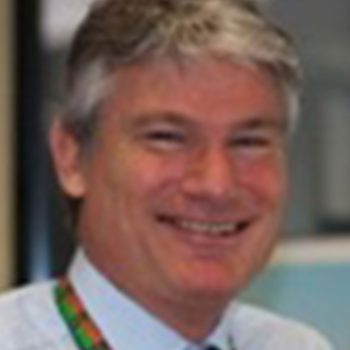 It was under the patronage of Ranieri Sabatucci, Head of the Asia and Pacific Department, European External Action Service, and
It was under the patronage of Ranieri Sabatucci, Head of the Asia and Pacific Department, European External Action Service, and
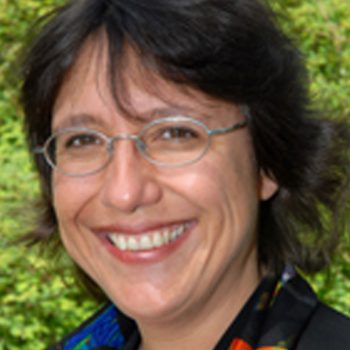 Prof. Tanja A. Börzel, Jean Monnet Chair and Director of the Centre for European Integration, Free University Berlin.
Prof. Tanja A. Börzel, Jean Monnet Chair and Director of the Centre for European Integration, Free University Berlin.
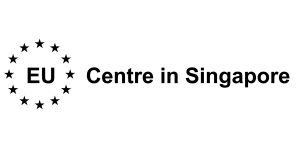 EU Centre in Singapore – the EU Centre is a consortium comprising the European Union, the National University of Singapore, Nanyang Technological University and the Singapore Institute of International Affairs, and is part of a worldwide network of 37 EU centres and institutes.
EU Centre in Singapore – the EU Centre is a consortium comprising the European Union, the National University of Singapore, Nanyang Technological University and the Singapore Institute of International Affairs, and is part of a worldwide network of 37 EU centres and institutes.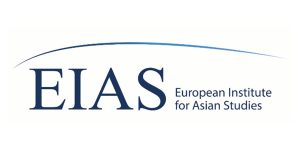 European Institute for Asian Studies – EIAS is a leading Think and Do Tank based in Brussels and Luxembourg, the twin capitals of the European Union, focusing on EU-Asia relations. As a policy research centre, its aim is to promote understanding between the European Union and Asia.
European Institute for Asian Studies – EIAS is a leading Think and Do Tank based in Brussels and Luxembourg, the twin capitals of the European Union, focusing on EU-Asia relations. As a policy research centre, its aim is to promote understanding between the European Union and Asia.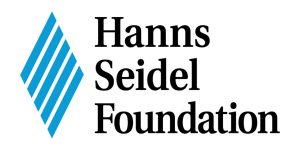 Hanns Seidel Foundation – “In the service of democracy, peace and development” – this is the motto that describes the work and mission of the Hanns Seidel Foundation. This maxim applies not only to its commitment in Germany – especially in Bavaria – but also abroad.
Hanns Seidel Foundation – “In the service of democracy, peace and development” – this is the motto that describes the work and mission of the Hanns Seidel Foundation. This maxim applies not only to its commitment in Germany – especially in Bavaria – but also abroad. The project is also supported by Podio.
How can I contribute?
Students and young researchers who are willing to actively contribute to developing our idea are welcome to join the Impact Group. If you have questions or ideas for future projects, feel free to contact us!

